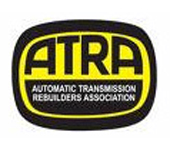817-446-7295 or 682-321-7117 | 2921 S Cooper St #101 Arlington, TX 76015
AUTONET TV
Archive for June 2025Breathe New Life into Your Engine (MAF sensor replacement)Posted June 29, 2025 3:44 AMIf you’ve noticed your vehicle is hard to start, stalling, or has lost power, the culprit may be a part with an odd name: the MAF sensor. You may have never even heard of a MAF sensor, but it’s important that it be working correctly, or you may be experiencing some fairly significant engine issues. All vehicles bring in air and direct it through an air filter before it goes into your engine, where it mixes with fuel to provide power to get you going. There’s a tube-like device with a sensor inside it that measures how much of that mass of air is passing through. That’s why it’s called a mass air flow sensor, or MAF sensor. If the MAF sensor isn’t working right, the engine’s computer can’t figure out the right amount of fuel to mix with it, and your engine may hesitate or stall. Sometimes this will cause your Check Engine Light to come on, and any time it does that, make sure you have your vehicle checked by a professional, so you’ll know what’s going on. When you take your vehicle into your service facility, a technician will thoroughly check the system to see just where the problems are. If your air filter is dirty, your MAF sensor may get dirty too, which might be causing the problems. You may find your fuel economy isn’t what it used to be either. There are other things that can cause the same symptoms, too, such as a leak in a vacuum hose. It’s also possible that the electrical connector between the MAF sensor and the engine has broken. The technician can use electronic diagnostic equipment to help pinpoint the exact problem or problems, replace worn parts, and test drive your vehicle to make sure it’s working correctly. It’s also a good idea to make sure your air filter is changed regularly. A dirty air filter can contribute to a MAF sensor failure. One of the big benefits of having your vehicle regularly maintained at one facility, is they know your vehicle. So, they keep track of which of your vehicle’s parts should be periodically replaced before problems develop. If you keep clean air heading into your engine, it can help your engine work efficiently, and with the power it was engineered to deliver. Isn’t that a breath of fresh air? Westmoreland Transmissions Not Too Hot and Not Too Cold (Temperature Gauge)Posted June 22, 2025 4:00 AMYou know your body temperature is supposed to be 98.6 degrees F, 37 degrees C. Your vehicle has a normal temperature, too, and if you pay attention to it, that can save you some big headaches down the road. Many vehicles have a temperature gauge on the dash that takes the temperature of the engine's coolant. Some have a thermometer symbol, some read C-H (cold to hot). Many will have a red zone that shows when water temperature is getting into the danger zone. Others are digital and have a red warning light that signals overheating. And some vehicles have a light that goes on when the engine temperature is out of the normal range. If your vehicle has a gauge, pay attention to it. If you need help locating it, ask one of our Westmoreland Transmissions experts to give you a quick explanation. Chances are when the vehicle has been running for 15 minutes or more, the temperature gauge will settle into its own "normal" zone, often just below the midway point. If you have a digital readout, remember what that "normal" temperature is. Here's why. At any point when you're driving, the temperature gauge is the quickest way to get a sense that the engine is running the way it should, a quick health checkup, as it were. Say you're on a 3-hour trip, glance at that gauge every hour or so. It should always be in the same spot. If it starts to move one way or the other, you may be able to catch a problem before it gets serious. Pay special attention to it moving into the hot zone. The needle on the gauge is the easiest and least distracting way to see an engine heating up, but on a digital gauge, start paying attention if the temperature reaches 240ºF/115ºC or more. Remember, though, that just because the gauge reads "hot" doesn't mean your engine is on the verge of burning up. It could be a bad sensor and the engine will be at a normal temperature. But it also could be a failing water pump, coolant leak or thermostat. By pulling off the road and observing your engine, it will give you a pretty good idea if it's running hot or not. If the gauge is too "cold," it could be a broken gauge or thermostat sticking open. Usually being in the cold range isn't as worrisome, but you should have it checked out since other systems may be affected. Heat is one of a vehicle's worst enemies, especially when it comes from within. Know your vehicle's normal temperature and keep an eye on it.
A Clean Connection (Battery Cleaning)Posted June 15, 2025 4:06 AMA clean connection is a wonderful thing. Think of a good cell phone signal or an airline connection with ample time and short distance to the next gate. Good connections are also important for your vehicle’s battery, and one secret to that is to make sure it’s periodically cleaned. If it’s been a while since you have had any service to your battery, bring it in so we can inspect it for any corrosion that might have formed. Corrosion on the battery terminals will affect the connection between the battery and your vehicle’s electrical system. The amount of corrosion you can expect can be influenced by such things as the kind of climate you live in (dry or humid, warm or cold), if there’s lots of salt on the roads and how old your battery is. We have tools and chemicals to safely remove the corrosion for an optimal electrical connection. In order to reduce the amount of corrosion re-forming on the battery, we’ll apply a special protective coating. It’s also important to have your battery tested, especially if it’s more than a few years old or hasn’t been tested in a while. Our equipment can measure how well a battery holds a charge and how much more life you should expect from it. We can discuss when you might expect to buy a new one, since a battery is definitely the kind of thing you don’t want to have fail you when you’re least expecting it. Westmoreland Transmissions The Red Menace (How to Deal with Rust)Posted June 8, 2025 5:09 AMRust. It's worse if you drive in places that use salt on the roads in winter, or if you spend time driving near a body of salt water. But any vehicle has to deal with rust after years on the road. And it's not just that rust can eat away your vehicle's body and fenders. It can be a real problem around your suspension, drivetrain or any place where there's metal. Rust takes its time. You don't see it until it's already done its dirty work. It can wreak havoc with your electrical system. Sure, vehicle manufacturers do their best to keep it to a minimum, but especially with road treatments like brine around, their task is a difficult one. The one spot everyone notices is in the paint. You see a little bubbling under the once-smooth surface. By the time it bubbles, it's well involved in rotting away that spot of your vehicle. You wouldn't believe how just a little thing can start the process on its way. A stone chips the paint down to the metal, moisture and salt reach the steel and rust is off and running. It could be a scratch in the paint, a little dent, acid from a parking garage, tree sap, you name it. If you spot it, show it to your service advisor because rust can be more than a cosmetic problem. It can be a safety issue. While you can see the rust destroy your vehicle's body, you can't see it destroying your engine. But it can. It can eat away at such areas as air intakes or the exhaust system. Not only can it reduce performance, but also it can disable electrical connections. In this day and age where just about everything in your vehicle has a computer component to it, just a small electrical problem can strand you at the roadside. Corrosion can attack your vehicle's chassis or frame, and they are what provide the structural strength and stability for everything attached. Think powertrain, suspension, axles, window frames. The list goes on and on. Structural integrity is vital to safety, so the stakes are high. Now you can see why rust damages more than just the good looks of your vehicle. There's one thing to remember about corrosion - much of it is only visible from underneath the vehicle. When you bring your vehicle in to Westmoreland Transmissions for service, our technician can look for any problems from that important vantage point. It's always a good idea to point out any spots that you think might spell trouble. That way you can stay ahead of it and beat rust at its own game.
Give me a Brake (Light)!Posted June 1, 2025 4:55 AMIf that little brake warning light pops up on your dash, do you know what it means? Well, if you said no, you wouldn't be alone. You know it has something to do with your brakes, but exactly what? You're not sure. One of the reasons is that it could mean a lot of different things. It could be something simple, like you put your parking brake on and forgot to take it off. Easy fix, you're on the road in seconds. Or, it could mean there's something wrong with your anti-lock brake system. That is a pretty complex symphony of speed sensors, computers and wiring, and sometimes things get a little out of whack. You could have a defective sensor or some wiring may have gotten damaged or come loose. A trained technician at Westmoreland Transmissions with special equipment can sort it all out. It's also possible you have low brake fluid. That could be caused by a number of things. One simple reason is that your brake pads have worn down. Replacing them could solve the problem. Another possibility is that you have a leak in your brake system. That could be serious. If your brake fluid level gets really low, your stopping power goes down along with it, and a vehicle that can't stop is a safety hazard to you and others on the road. Of all the warning lights on your instrument panel, pay attention to the brake warning light. If it comes on, come on over to Westmoreland Transmissions very, very soon. A vehicle is great when it's moving. But if it can't stop, well, that is a disaster waiting to happen. We’d love to hear from you. Let us know if you have any questions. Westmoreland Transmissions | ||
SearchArchiveApril 2018 (16)May 2018 (5) June 2018 (4) July 2018 (5) August 2018 (4) September 2018 (5) October 2018 (4) November 2018 (4) December 2018 (5) January 2019 (5) February 2019 (4) March 2019 (5) April 2019 (4) May 2019 (4) June 2019 (5) July 2019 (4) August 2019 (4) September 2019 (5) October 2019 (4) November 2019 (4) December 2019 (5) January 2020 (5) February 2020 (4) March 2020 (5) April 2020 (4) May 2020 (5) June 2020 (4) July 2020 (4) August 2020 (5) September 2020 (4) October 2020 (4) November 2020 (5) December 2020 (4) January 2021 (6) February 2021 (4) March 2021 (4) April 2021 (4) May 2021 (5) June 2021 (4) July 2021 (4) August 2021 (5) September 2021 (4) October 2021 (5) November 2021 (4) December 2021 (4) January 2022 (6) February 2022 (4) March 2022 (4) April 2022 (4) May 2022 (5) June 2022 (4) July 2022 (5) August 2022 (4) September 2022 (4) October 2022 (5) November 2022 (4) December 2022 (4) January 2023 (5) February 2023 (4) March 2023 (4) April 2023 (5) May 2023 (4) June 2023 (4) July 2023 (5) August 2023 (4) September 2023 (4) October 2023 (5) November 2023 (4) December 2023 (4) January 2024 (5) February 2024 (4) March 2024 (5) April 2024 (4) May 2024 (4) June 2024 (5) July 2024 (4) August 2024 (4) September 2024 (5) October 2024 (4) November 2024 (4) December 2024 (5) January 2025 (4) February 2025 (4) March 2025 (5) April 2025 (4) May 2025 (4) June 2025 (5) July 2025 (4) August 2025 (5) September 2025 (4) October 2025 (4) November 2025 (5) December 2025 (4) January 2026 (4) February 2026 (4) March 2026 (1) | CategoriesWhat Customers Should Know (54)Battery Replacement (1)Steering (11)Maintenance (8)Fuel Economy (5)Keys to a long lasting vehicle (2)Check Engine Light (2)Air Conditioning (9)Battery (10)Tires and Wheels (4)Auto Safety (4)Transmission (3)Alternator (2)Fuel Saving Tip: Slow Down (2)Shocks & Struts (3)Fluids (5)Automotive News (1)Brakes (12)Older Vehicles (1)Service Intervals (1)Drive Train (2)Oil Change (8)Cooling System (3)Service Standards (1)Windshield Wipers (2)Headlamps (2)Winter Tires (1)Exhaust (7)Customer Detective Work (1)Fuel System (3)Tires (7)Alignment (5)Tire Rotation and Balancing (3)Transfer Case Service (1)Suspension (1)Winter Prep (2)PCV Valve (1)Safety (2)TPMS (1)Inspection (3)Timing Belt (3)Shocks and Struts (1)Brake Service (2)Spark Plugs (1)Wheel Bearings (1)Engine Air Filter (1) | |
coupons
HOLIDAY SPECIAL
4L60E With Torque Converter
view coupon
Carry Out - Normal Price $1,600
Carry Out - Holiday Price $1,400
Testimonials
Benji Palmer, 02/27/2026
Rear main seal replacement. In at 8:30am out @ 2pm. INSANE!! Awesome staff both shop and front desk!! Family owned and operated and they look you in the eye when you speak to them. They gave me a heads up on a couple of other potential trouble spots on my F150 and NO pressure to update, etc. TAKE YOU VEHICLE TO THEM. Tremendous service - competitive pricing!!!!!!















